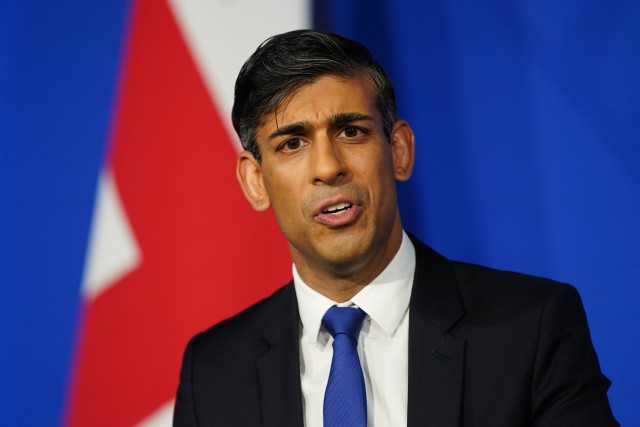Prime Minister Rishi Sunak has been confirmed to give evidence at the Covid inquiry. The public inquiry is investigating the UK's response to, and the impact of, the Covid-19 pandemic, which saw the country plunged into its first lockdown in 2020.
When is Rishi Sunak expected to speak at the Covid inquiry?
Rishi Sunak will give evidence at the Covid inquiry on Monday, December 11. The now-PM acted as Chancellor during the pandemic.
It has been reported that Sunak will be be questioned about his policies, such as the Eat Out to Help Out scheme, and the impact they had.
WhatsApp messages already shown to the UK Covid-19 Inquiry have revealed that Sunak was allegedly referred to as "Dr Death" by advisers during the pandemic. The disturbing nickname was given to Sunak due to concerns about the impact of his push to keep economic activity going after the first lockdown.
After a push to encourage diners to eat out in restaurants over the summer of 2020, there was a bigger, deadlier wave of Covid that winter.
Who has given evidence at the Covid inquiry so far?
Boris Johnson, who was Prime Minister during the pandemic, gave evidence at the Covid inquiry in early December. The Chair of the inquiry is Baroness Heather Carol Hallett DBE.
In his opening remarks Johnson said: "Can I just say how glad I am to be at this inquiry and how sorry I am for the pain and the loss and the suffering of the Covid victims." He was then heckled by members of the public sitting in the gallery, who were promptly asked to leave.
While giving evidence, Johnson admitted he "underestimated" the threat of coronavirus. He added that he "should have twigged" the severity of the situation once the virus had shut down Italy.
Matt Hancock was Health Secretary during the pandemic. He gave evidence at the Covid inquiry in late November, where he claimed that huge number of lives could have been saved the UK had been put into a lockdown three weeks earlier than it was.
Britain locked down on March 23, 2020, but Hancock said that "in hindsight" this should have happened earlier. He stated that imposing restrictions on March 2, 2020, would have spared 90 percent of the deaths that occurred in the first wave of the pandemic.
Dominic Cummings spoke at the Covid inquiry at the start of November. During his four-hour evidence session, the former chief adviser to Boris Johnson revealed how chaotic the early days of the outbreak were.
Cummings stated that tighter border controls may have prevented lockdowns and said vulnerable groups were "appallingly neglected". He also faced questions over his infamous Barnard Castle trip from 2020 and admitted the incident "did cause a lot of people pain".
Priti Patel, who was Home Secretary during the pandemic, gave evidence at the Covid inquiry in November. She revealed that the £10,000 fines that were handed out for breaking lockdown were "over the top" and blamed Boris Johnson for pushing for the large penalties.
Patel also said that the policing of a vigil held for Sarah Everard on London's Clapham Common was "totally inappropriate". She admitted to feeling "dismayed" by how Scotland Yard handled the vigil after seeing the footage of police pinning down women who attended the event.
Other government officials to have given evidence at the Covid inquiry include:
– Sajid Javid
– Michael Gove
– Jonathan Van Tam
– Martin Reynolds








